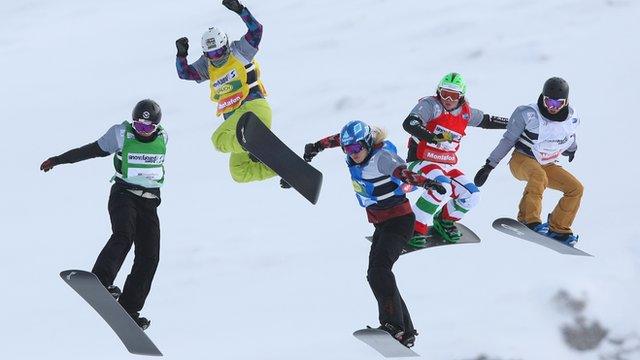Sochi 2014: How did Team GB perform at the Winter Olympics?
- Published
Britain's brilliant Sochi medal haul
Great Britain will look at the 2014 Sochi Olympics as a significant step forward for winter sport after surpassing the three-medal target set by UK Sport.
Lizzy Yarnold's skeleton gold, silver for the men's curlers, bronze for the women's curlers and Jenny Jones in snowboard slopestyle equalled the record of four medals Great Britain won at the inaugural Winter Olympics in Chamonix 1924.
UK Sport invested £13.4m from lottery and exchequer funding to achieve their goal, but could have earned more podium places.
Elise Christie's three disqualifications in short track were a bitter pill to swallow, highly-rated slopestyle skier James Woods was hampered by a hip injury in training and John Jackson's GBR 1 bobsleigh crew led briefly on a tense final afternoon in the Sochi sun.
Olympic sport is decided by fine margins - there are winners, losers and those in between. Four years of toil is done. The long road to Pyeongchang begins now.
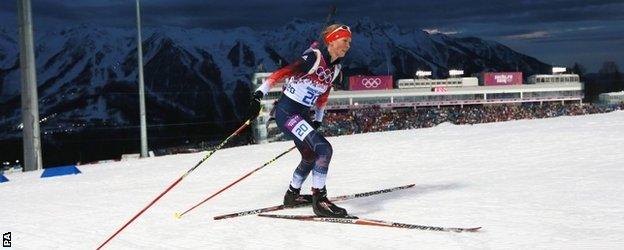
BIATHLON & CROSS COUNTRY
UK Sport funding to Sochi: £0 Medals in Sochi: 0
Soldiers Lee Jackson and Amanda Lightfoot represented Great Britain in biathlon but both finished outside the top 40 in their events.
In cross country, Britain had four athletes competing with a best finish of 29th in the sprint free by Andrew Musgrave, who recently won the Norwegian national championships.
The 23-year-old was 44th in the 15km classic and 53rd in the 50km mass start, but did not finish the team sprint classic after team-mate Andrew Young suffered from a flare up of a pre-existing heart condition.
Others: Jackson (33) - 67th in 10km sprint, 42nd in 20km individual; Lightfoot (27) - 71st in 15km individual, 75th in 7.5km sprint. Young (22) - 42nd sprint free, 37th in 15km classic; Callum Smith (21) - 67th in 15km classic, 62nd 15km + 15km skiathlon, 62nd sprint free; Rosamund Musgrave (27) - 66th in 10km classic, 42nd in sprint free.
BBC commentator Rob Walker said: "Andrew Musgrave will be pretty disappointed. He came last in his sprint free quarter, and he'll be wishing that worked out differently. It was still the best performance ever by a Briton in cross country (Tom Cairney was 28th out of 30 in 1956) so he is making inroads, albeit slowly, in what is a very competitive field.
"Overall, the fact Britain had four cross-country skiers was absolutely tremendous. Vancouver was first time Britain even had any cross-country skiers since 1994. Hopefully people at home have seen the sport a bit and it's perked the interest.
"The biathlon was OK, but they need a bit more financial support. They are heavily reliant on army people at the moment."
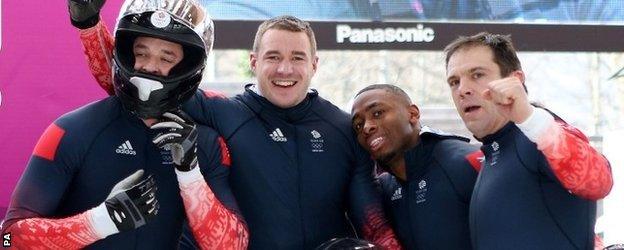
BOBSLEIGH
Funding to Sochi: £3,304,250
Previous Olympic success: Gold: 1964 (two-man), silver: 1924 (four-man), bronze: 1936 and 1998 (four-man).
Performance target: 0-1 medal (or 1x 4th-6th for men; 1x 4th-8th for women) Medals in Sochi: 0
GBR 1 pilot John Jackson steered his four-man team into the lead at one stage midway through the fourth run but the remaining crews nudged them down to fifth at the Sanki Sliding Centre.
Jackson, who defied doctors by fighting back from a serious Achilles injury, drove his crew of Joel Fearon, Stuart Benson and Bruce Tasker to within 0.11s of an Olympic medal. The quartet, who came to Sochi as European silver medallists, achieved their Games target of a top-six finish.
Lamin Deen's GBR2 four-man squad narrowly qualified for the top-20 to contest the final run and ended 19th.
Britain's women's crew of Paula Walker and Rebekah Wilson finished 12th, while Deen and John Baines in the two-man bob came 23rd. The team only came together the week before competition started after a back injury in training ruled out Beijing Olympic sprinter Craig Pickering.
Former Olympic brakeman and BBC commentator Colin Bryce said: "Paula Walker didn't get on with the track initially and struggled in training, but she stepped it up in competition and although she was not in the top eight as she hoped, I still think it was a solid result.
"Lamin Deen is a pilot for the future. He's a big strong man, improved over the season, especially in the four-man, and bodes well for the future.
"John Jackson and his crew pushed exceptional starts. The athletes they brought into the crew, and the technological help from McLaren and BAE Systems, gave him the chance to drive as well as he did, despite the horrific injury.
"You need a good pilot, a good start and good equipment and for GBR 1, all three elements were exceptional. I hope Jackson stays in the sport for another couple of seasons to pick up some more deserved medals."
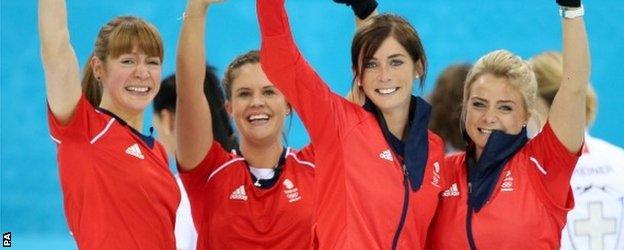
CURLING
Previous Olympic success: Gold: 1924 (men) and 2002 (women)
UK Sport funding to Sochi: £2,055,100
Performance target: 1-2 medals Medals in Sochi: 2 (one silver, one bronze)
Britain's curlers once again captivated the nation with their ancient and absorbing game. And in winning two medals they achieved at the top end of their performance target, proving the British curling machine is working.
David Murdoch's men beat world champions Sweden to reach the final but went down 9-3 to defending champions Canada in the gold-medal match.
"We just never got off to a good start," said Murdoch. "A silver medal is scarily cool."
Eve Muirhead's women lost to Canada in the semi-final but beat Switzerland 6-5 with the last stone of the match to claim bronze.
"It's a dream come true," said Muirhead. "This is the medal we've been missing and to win it with four of my best friends feels so special."
Former Olympic curler and BBC commentator Jackie Lockhart said: "We've hit our targets, won a silver and a bronze and raised the profile of our sport. It's onwards and upwards from here."
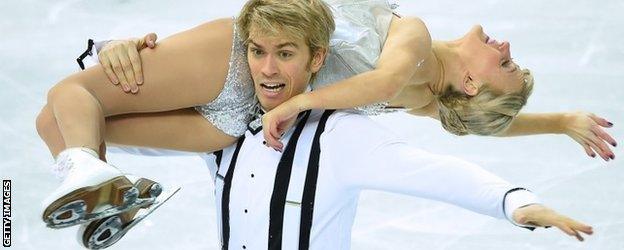
FIGURE SKATING
Previous Olympic success: Gold: Jayne Torvill & Christopher Dean (1984), Robin Cousins (1980), John Curry (1976), Jeannette Altwegg (1952), silver: Cecilia Colledge (1936), bronze: Torvill & Dean (1994), Altwegg (1948) and Ethel Muckelt (1924).
UK Sport funding to Sochi: £174,338
Performance target: Top-10 Medals in Sochi: 0
Britain's six skaters competed in the team event first and placed a not wholly unexpected 10th and last, with only the top five going through to the free programme.
In the ice dance, Penny Coomes and Nick Buckland - the latter skating less than four months after undergoing heart surgery - met their top-10 target with 10th overall.
The GB pair of David King, 29, and Stacey Kemp, 23, finished 19th out of 20 in the short programme and so also fell short of qualification for the free skate.
Jenna McCorkell, 27, fell one place short of qualification for the free skating after finishing 25th in the short programme.
BBC figure skating commentator Sue Barker said: "Penny and Nick had a really traumatic first week when they were penalised by the judge in the short programme twice, mainly for an extended lift which they didn't get right, which was heart breaking for them.
"They bounced back with a fabulous free dance that gives them a lot of confidence going forward. The 2018 Winter Games were always their goal and they have learned some harsh but valuable lessons in Sochi."
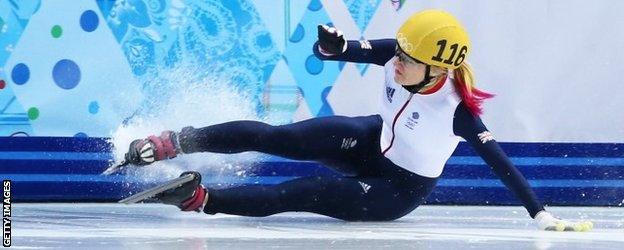
SHORT TRACK SPEED SKATING
Previous Olympic success: Bronze: Nicky Gooch (1994) 500m
Funding to Sochi: £2,953,400
Performance Target: 0-1 medal (or 2x top 8) Medals in Sochi: 0
Short-track speed skating can be cruel at the best of times, but Elise Christie suffered the worst of times. The 23-year-old was tipped to pick up medals in one or all of her disciplines - 500m, 1500m and 1,000m - but in each she was penalised for racing infringements.
In the 500m final, she crossed the line second but was deemed to have caused an earlier collision. In her 1500m heat she came first but was ruled not to have crossed the proper finish line.
And in the semi-final of the 1000m - her favourite event - Christie was judged to have impeded a Chinese athlete as they both fell over. Christie also had to endure online abuse, mainly from South Korean fans after an incident with one of their athletes in the 500m.
The only other Briton to reach a final was Jack Whelbourne, 22, but he crashed and hurt his ankle to finish last of the seven in the 1500m.
Others: Whelbourne - 27th in 500m, 21st in 1000m; Jon Eley (29) - 7th in 500m, 25th in 1000m; Richard Shoebridge (28) - 27th in 1000m; Charlotte Gilmartin (23) - 16th in 500m; 28th in 1500m.
Former Olympian and BBC short track commentator Wilf O'Reilly said: "The British team can fly home with their heads held high despite missing out on medals. They can feel proud that they've shown what short track is all about and how you cope with this rollercoaster sport.
"The International Skating Union and the technical committee need to start looking at how they can make the sport, from a rules point of view, more understandable. Everybody keeps asking why Elise Christie was disqualified and so few people know.
"If there is a penalty, the referee should announce it so the whole arena knows what it is, the commentators know and people at home know. Then it becomes far more interesting - you understand it.
"What's important now is we not only have funding for the future to support the high-performance programme, but create funding to improve the grassroots development of the sport."
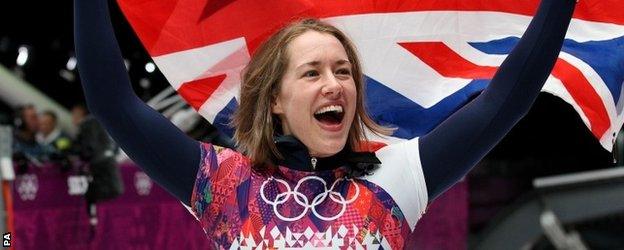
SKELETON
Previous Olympic success: Gold: Amy Williams (2010), silver: Shelley Rudman (2006), bronze: David Carnegie (1928), John Crammond (1948), Alex Coomber (2002)
Funding to Sochi: £3,447,600
Performance Target: 1 medal Medals in Sochi: 1 (one gold)
Lizzy Yarnold followed up Amy Williams's success in Vancouver with victory in Sochi to keep the women's skeleton gold medal firmly in British hands.
The 25-year-old went into the Sochi Games as the clear favourite and her commanding performance maintained Britain's great tradition of winning a medal in every Games the skeleton has been contested - six in all.
Team-mate Shelley Rudman, 32, finished 16th in her third Olympics, while partner Kristan Bromley, 41, was eighth in his fourth Games and Dominic Parsons 10th on his Olympic debut.
BBC pundit and 2010 Olympic champion Amy Williams said: "Lizzy is living proof that the British skeleton performance programme works. By getting the right people involved, making the right decisions, working hard, with the best equipment and the right coaching, you can produce an Olympic champion. It's exciting that when we get back there will be another huge talent search to find the next batch.
"I don't have an answer as to why the men have not performed quite as well, historically, as the girls but there are some good young guys coming through and we've got to keep up the development, do the same things we did with Lizzy, and target four years' time."
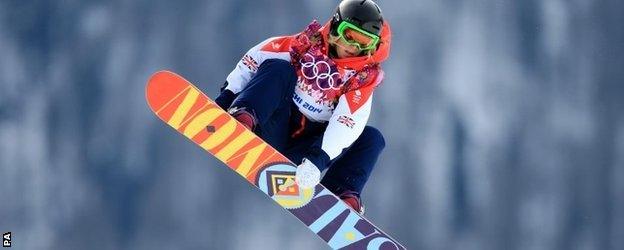
SKI AND SNOWBOARD
Previous Olympic success: No medals (Alain Baxter's "bronze" in the 2002 slalom was rescinded for failing a drugs test)
Funding to Sochi: £0 for alpine, £1,509,950 for freestyle skiing and snowboarding.
Performance target: 1-2 medals Medals in Sochi: 1 (one bronze)
Freestyle skiing and snowboarding
The Sochi Games featured the new discipline of slopestyle, which was tipped as a possible source of British medals - and so it proved. Snowboarder Jenny Jones, 33, bagged Britain's first ever medal on snow with a bronze to kick start the GB medal haul.
In the men's event, 20-year-old Jamie Nicholls was sixth with team-mate Billy Morgan, 24, 10th.
GB's Jones wins historic bronze medal
In the skiing equivalent, Britain's big hope James Woods, the 2012-13 World Cup winner, injured his hip in training and came fifth, while 18-year-old Katie Summerhayes was seventh. Zoe Gillings narrowly missed out on the snowboard cross final to place ninth.
Halfpipe skier Rowan Cheshire, 18, a World Cup winner this season, missed the competition after a training accident put her in hospital with concussion.
Others: Dom Harington (29) - 38th snowboard halfpipe; Ben Kilner (25) - 34th snowboard halfpipe; Emma Lonsdale (29) - 18th ski halfpipe; Murray Buchan (22) - 17th ski halfpipe; James Machon (23) - 23rd ski halfpipe.
BBC commentator Ed Leigh said: "In 2006, we had Zoe Gillings and Lesley McKenna representing GB. In two Olympic cycles we've gone to a medal and six top-10 finishes. It's unbelievable really. They have had a bit of funding but it's down the passion and the grassroots of the sport in the UK.
"On a personal level for Jenny it has been a really important achievement, but for British freestyle skiing and snowboarding it could be the starting block of some huge investment both from UK Sport and other sponsorship and the sport could explode in the UK.
"I'm very excited about the future. Woodsy is pretty disappointed, and is beating himself up, but the way he skied and what he managed to achieve with his hip injury was unbelievable."
Alpine skiing
With no lottery funding for alpine skiing in the wake of Vancouver, only two skiers were able to satisfy performance criteria and make it to Sochi.
Chemmy Alcott fought back from career-threatening double leg fracture in 2010 and a further break in 2013 to compete in her fourth Games. The 31-year-old finished 19th in downhill and 23rd in super-G. Dave Ryding, 27, fell foul of a devilish gate that caught out some of the world's best but recovered to finish 17th in the men's slalom.
Five-time Olympic skier and BBC commentator Graham Bell said: "We had two top-20 performances, but there should have been more skiers here. I don't think the selection policy reflected the ability we have in alpine skiing and we should have seen the likes of Dougie Crawford and TJ Baldwin representing us in men's downhill.
"They would certainly have been in the top half of the field which I thought was the BOA's rule of thumb for performance.
"In my opinion, alpine selection criteria needs to be looked at, and also the funding needs to be looked at because alpine is the feeder into a lot of the other sports and participation-wise it dwarfs freestyle skiing and snowboarding amongst junior athletes.
"So a good performance from Chemmy and Dave - but there should have been more of them."
- Published23 February 2014
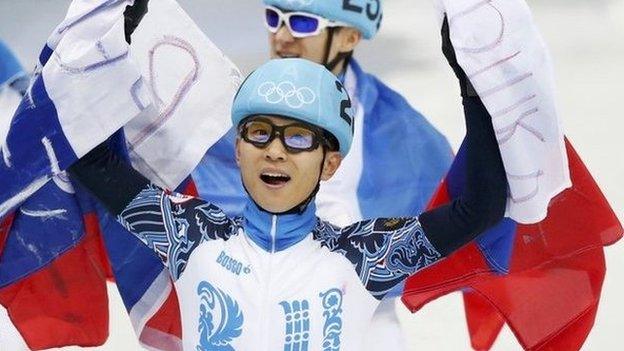
- Published23 February 2014
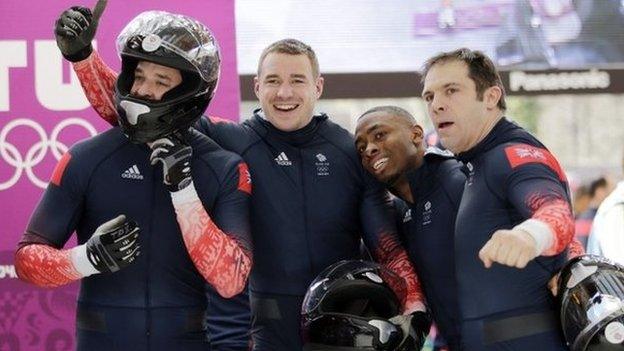
- Published21 February 2014
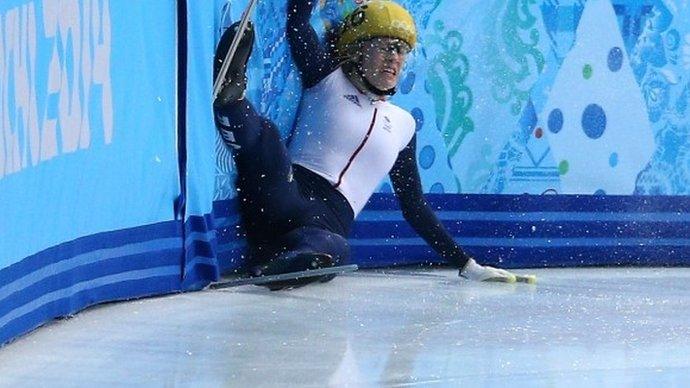
- Published20 February 2014
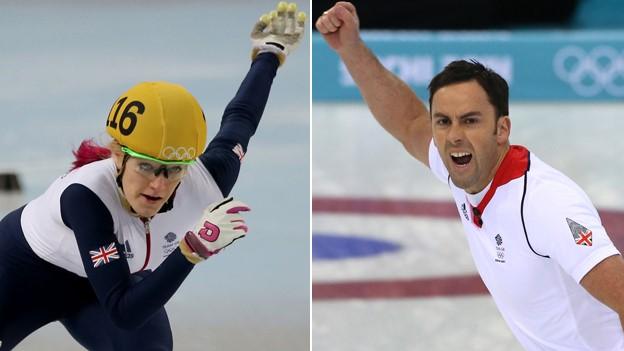
- Published14 February 2014
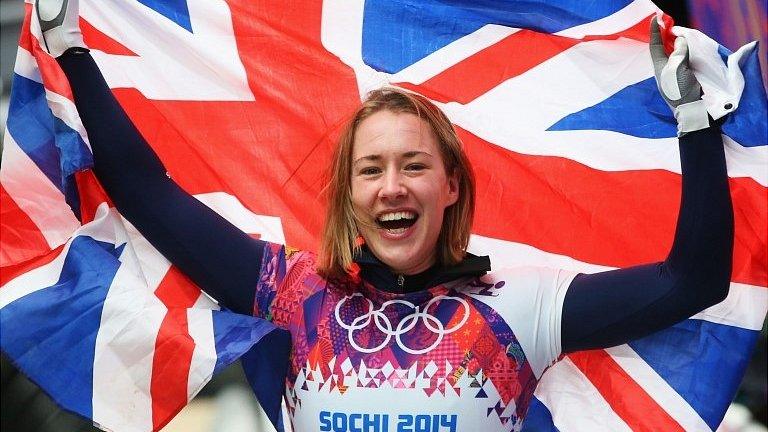
- Published9 February 2014
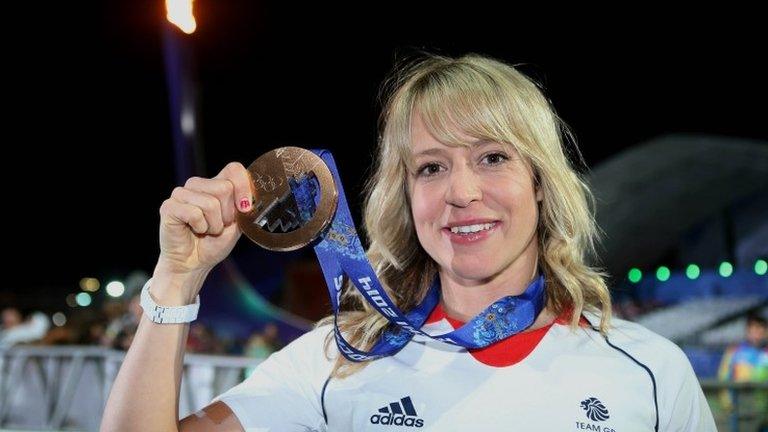
- Published10 January 2014
